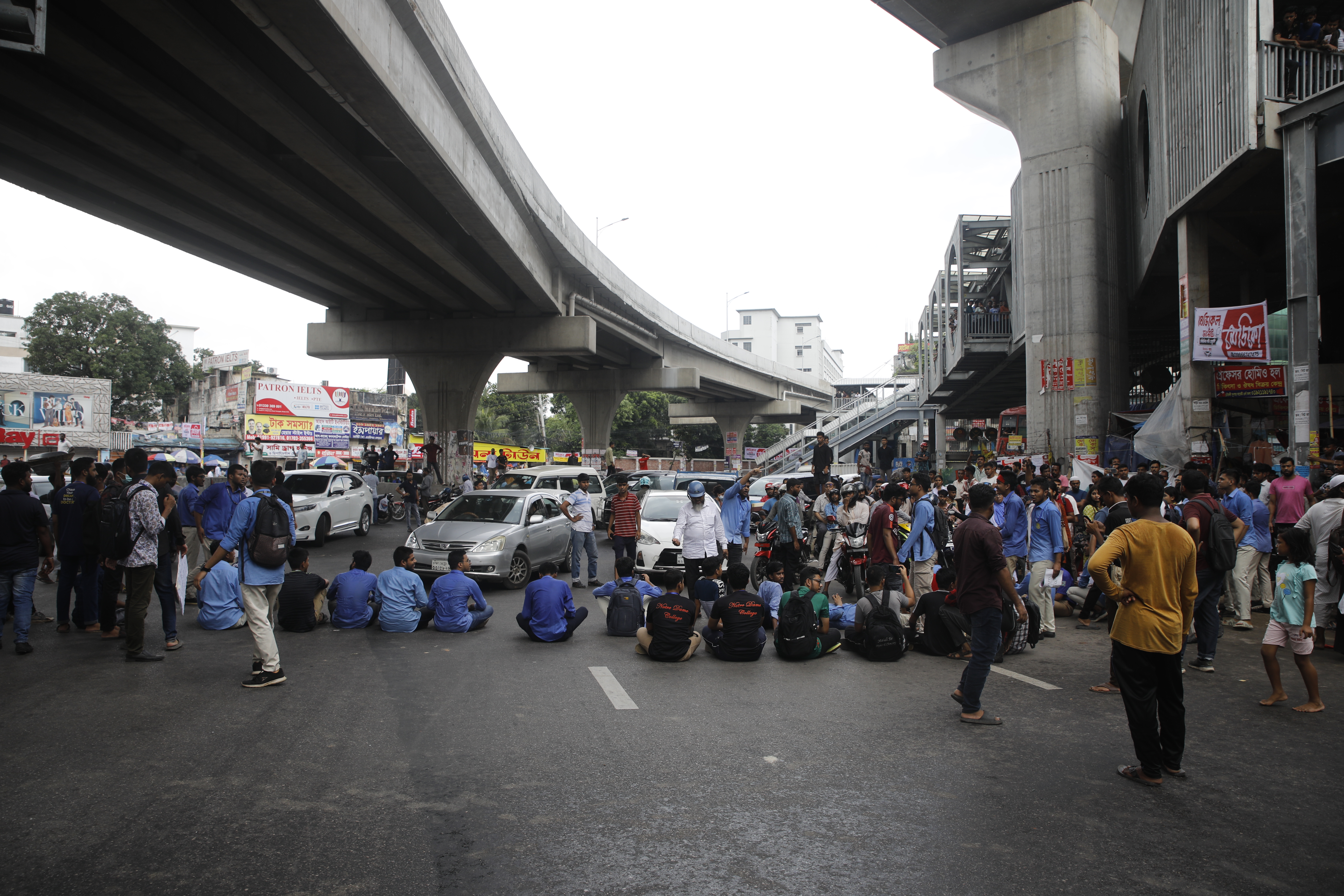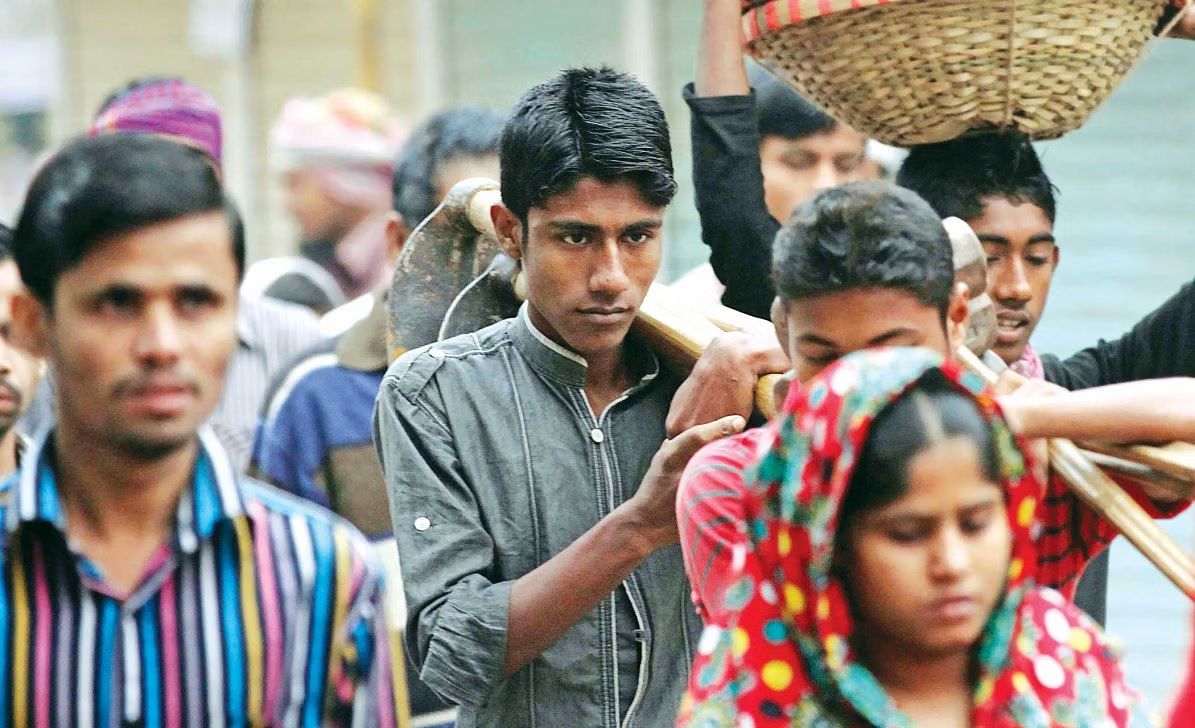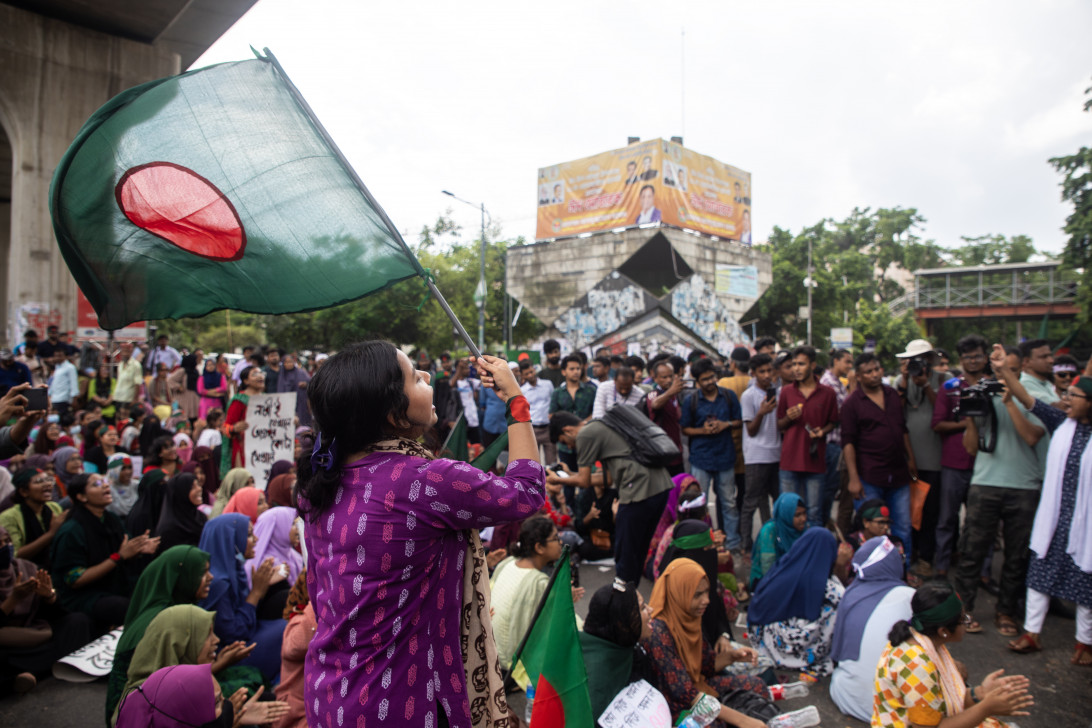Generation Z will be shaping the next few decades

The young generation of today, around the age of 14-29 years, is the first social generation born in the digital era. The cohort born roughly between 1995 and 2010 is bracketed as Generation Z, or in short Gen Z. Because these young people have grown up with access to the Internet and digital mobile technology, and since they have very little or no memory at all of a world without touchscreens and social media, members of Generation Z have also been dubbed "Digital Natives."
According to the Global Youth Development Index Update Report 2023, published by the Commonwealth Secretariat, almost half of the global population, and 60 percent of the Commonwealth population, are under 30 years old. The number of 15-to-29-year-olds was 1.8 billion in 2022, or around 23 percent of the total world population.
At the global level, there has been much discussion in recent years emphasising the need for stronger and more prominent inclusion of young people in decision-making spaces. In Bangladesh, two key coordinators of the Anti-discrimination Students' Movement have been appointed advisers (equivalent to minister) of the interim government formed in August after the previous oppressive government was ousted following a major student-mass uprising. Inclusion of students in top decision-making positions of the government is unprecedented in the world, which carries deep-seated implications and speaks of the expectations of the young generation.
Bangladesh is going through a demographic transition, changing the age structure of the population. According to the Population and Housing Census 2022, young people between 15-29 years of age make up 27.82 percent of the total population.
This change in population occurred due to the gradual shift from high fertility and mortality to low fertility and mortality. According to the 2022 census, the proportion of the working-age population (aged between 15 and 64) is 65.63 percent of the total population, which was 60.62 percent in the 2011 census and 57.01 percent in 2001 census.
The high ratio of the working-age population in comparison with the dependent population, aged between 0 and 14 years plus 65-years-old and above, offers a demographic window of opportunity for Bangladesh. If utilised properly, this ratio can be transformed into a demographic dividend of economic growth.
However, studies show that demographic dividend is not just an automatic outcome of labour participation rate but also a growth outcome achieved through the right policy and action. Failure to act effectively and promptly to adapt to the changing age structure increases the risk of missing the opportunity to achieve higher economic growth. In case of failure to act promptly and effectively, there even remains the likelihood of facing worse penalties such as rising unemployment, higher rates of crime and drug addiction, mass unrest, and political instability.
As half of the world's population is under 30, it is now more important to change the way decisions are made because the lives of young people are affected the most by the decisions we make today. The Be Seen Be Heard Global Youth Survey conducted in December 2021, indicated that 76 percent of people aged under 30 believe politicians simply don't listen to young people. This large-scale qualitative and quantitative research was commissioned by The Body Shop in collaboration with the United Nations Office of the Secretary-General's Envoy on Youth.
The research found that across the board, 75 percent of people surveyed think politicians are "untrustworthy" and 84 percent of people described politicians as "self-interested." The majority of the people in the survey also agree that the age balance in politics is wrong.
Our general conception of young people is broadly the primary barrier to giving more weight to young voices in public decision-making spaces. We should rather ask ourselves, are young people really irresponsible and disengaged and do they actually lack the will and aptitude to create real impact?
Back in 2017, a not-for profit organisation Varkey Foundation commissioned a research on a global scale into the attitudes of 15- to 21-year-olds on a variety of ethical, personal, community and political issues. The Generation Z: Global Citizenship Survey 2017 polled more than 20,000 respondents in 20 countries across North and South America, Europe, Africa, Australia and Asia, including India from South Asia. The survey found that the majority of the Gen Z respondents considered making a wider contribution to society to be important to them.
The Deloitte Global 2024 Gen Z and Millennial Survey connected with 22,841 respondents in 44 countries to explore their attitudes about work and the world around them. The Survey recorded the responses of 14,468 Gen Zs and 8,373 millennials from countries across North America, Latin America, Western Europe, Eastern Europe, the Middle East, Africa, and Asia-Pacific
The survey found that nearly all Gen Zs and millennials want purpose-driven work, and they're not afraid to turn down work that doesn't align with their values. Roughly nine in 10 Gen Zs (86 percent) and millennials (89 percent) said having a sense of purpose in their work is very or somewhat important to their overall job satisfaction and well-being.
Teenagers and young adults of today are the people who will shape the next few decades. In a time when the world is infested with conflicts and terrorism, climate change, rising inequality and economic instability, we shall need a balanced generational mix in the public decision-making space to find solutions to problems that have so far been unresolved. If generations of all ages come together, we can view things from the fresh perspective of young people and include their voices in politics and civic engagements.
By investing in young people Bangladesh can transform its one-time demographic window of opportunity into a demographic dividend. Investment to create an environment of high-quality health and education is necessary to make the most of our demographic opportunities. Reforms are necessary to ensure transparency, accountability and good governance for the attainment of the demographic dividend.
Public-private partnerships are imperative in many areas of social policy to come up with innovative ways for both public and private sectors to share costs and administrative duties associated with the provision of social services. The government, on the one hand, must become more efficient trustees of taxpayers' money. On the other hand, businesses need to explore the effects of a whole range of factors from better-educated workers to improved environmental performance.
The degree to which young people successfully engage with their respective work and civic engagement at large will positively play a key role in determining the future progress of Bangladesh. If the young people are given the support they rightly deserve to keep up their strife and motivation, Bangladesh can positively achieve inclusive growth. The coordinators of the Anti-discrimination Students' Movement have laid the first stepping stones towards a more inclusive and justified future.
T.I.M. Nurul Kabir is a policy and technology analyst.
Views expressed in this article are the author's own.
Follow The Daily Star Opinion on Facebook for the latest opinions, commentaries and analyses by experts and professionals. To contribute your article or letter to The Daily Star Opinion, see our guidelines for submission.




 For all latest news, follow The Daily Star's Google News channel.
For all latest news, follow The Daily Star's Google News channel. 


Comments